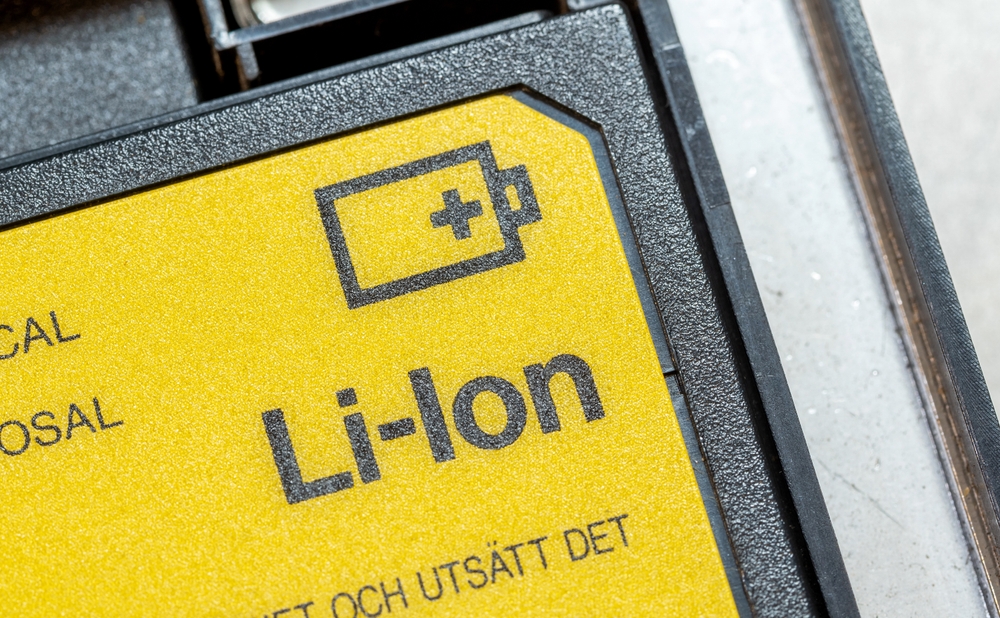
A Word About Lithium Batteries
November 28, 2024 7:13 pm Leave your thoughtsLithium batteries have become a cornerstone of modern technology, powering everything from smartphones and laptops to electric vehicles and renewable energy systems. Their efficiency, lightweight construction, and long lifespan make them a preferred choice in various applications. However, these high-performance batteries come with unique characteristics and challenges. Let’s delve into the fascinating world of lithium batteries, their chemistry, the warning signs you should watch for, and the importance of managing them properly.
What Is a Lithium Battery?
A lithium battery is a rechargeable power source that uses lithium as a key component of its chemistry. Unlike traditional lead-acid or nickel-cadmium batteries, lithium batteries are lighter, have a higher energy density, and last longer. The use of lithium, a highly reactive metal, gives these batteries their impressive capabilities.
Interestingly, lithium batteries are not composed of pure lithium. Instead, they pair lithium with another metal, such as cobalt, nickel, or iron phosphate. This combination creates unique battery chemistries, each tailored for specific applications. For example, lithium iron phosphate batteries are known for their stability and long lifespan, while lithium cobalt oxide batteries are preferred for devices requiring high energy density.
How Lithium Batteries Work
At the core of a lithium battery are individual cells, each containing an anode, a cathode, an electrolyte, and a separator. When the battery is charged, lithium ions move from the cathode to the anode through the electrolyte. During discharge, the ions flow back to the cathode, creating an electric current.
While this process is efficient, it requires precise control. Lithium is highly reactive, and its volatility can pose risks if not carefully managed. Temperature, voltage, and state of charge are critical parameters for ensuring the safe operation of a lithium battery.
The Role of Battery Management Systems
To control the volatility of lithium, each individual cell in the battery must be managed in terms of temperature, voltage, and state of charge. This is where the battery management system (BMS) comes into play. A BMS monitors and controls each cell, ensuring they operate within safe limits. It balances the cells to prevent overcharging or deep discharging, both of which can damage the battery or lead to safety hazards.
The success of maintaining close tolerances regarding temperature is vital to the operation of a lithium battery. If the cells overheat, the battery could fail catastrophically. Similarly, operating the battery at extreme temperatures—whether too hot or too cold—can significantly reduce its lifespan and performance.
Lithium Battery Warning Signs
While lithium batteries are generally safe when used correctly, they are not without risks. Recognizing the warning signs of potential issues can help prevent accidents and extend the life of your battery. Here are some key lithium ion battery warning signs to watch for:
1. Swelling or Bulging
One of the most visible warning signs is a swollen or bulging battery. This often indicates gas buildup inside the battery due to chemical reactions caused by overcharging, overheating, or internal damage. If you notice this, stop using the battery immediately and replace it.
2. Excessive Heat
Lithium batteries naturally generate some heat during operation, but excessive heat is a red flag. If your device becomes unusually hot to the touch, the battery may be overworked or malfunctioning. Turn off the device and allow it to cool down.
3. Unusual Odors
A burning or chemical smell coming from a lithium battery is a serious warning sign. It often indicates a thermal runaway, a dangerous condition where the battery’s temperature rapidly rises, potentially leading to a fire or explosion.
4. Leakage
Liquid leakage from a lithium battery is rare but dangerous. The electrolyte inside the battery is toxic and flammable. Avoid direct contact and dispose of the battery safely.
5. Reduced Performance
If your battery suddenly loses capacity or discharges faster than usual, it could signal internal damage. While this is less urgent than other warning signs, it’s a good reason to have the battery inspected or replaced.
Types of Lithium Battery Chemistries
Manufacturers have developed several types of lithium battery chemistries, each with unique characteristics. These variations affect the battery’s performance, safety, cost, and suitability for different applications. Here’s a closer look at the most common types:
Lithium Iron Phosphate (LiFePO4)
- Characteristics: High stability, long lifespan, and excellent thermal management.
- Applications: Electric vehicles, renewable energy storage, and power tools.
- Pros: Safer and more durable.
- Cons: Lower energy density compared to other chemistries.
Lithium Cobalt Oxide (LiCoO2)
- Characteristics: High energy density but less stable.
- Applications: Smartphones, laptops, and other portable electronics.
- Pros: Lightweight and efficient.
- Cons: Higher risk of overheating.
Lithium Nickel Manganese Cobalt Oxide (LiNiMnCoO2 or NMC)
- Characteristics: Balanced performance and safety.
- Applications: Electric vehicles and medical devices.
- Pros: Versatile and widely used.
- Cons: More expensive than other chemistries.
Lithium Titanate (Li4Ti5O12)
- Characteristics: Ultra-fast charging and long cycle life.
- Applications: Electric buses and grid storage.
- Pros: Excellent safety and durability.
- Cons: Lower energy density and higher cost.
Benefits of Lithium Batteries
Lithium batteries have revolutionized energy storage and portable power. Their benefits include:
- Lightweight Design: Ideal for applications where weight is critical, such as drones and electric vehicles.
- High Energy Density: Provides more power in a smaller package.
- Long Lifespan: Reduces the need for frequent replacements.
- Fast Charging: Saves time compared to older battery technologies.
- Eco-Friendly Options: Lower environmental impact when recycled properly.
How to Extend the Life of Your Lithium Battery
Proper care and maintenance can help you get the most out of your lithium battery. Here are some tips:
- Avoid Extreme Temperatures: Keep the battery within the recommended temperature range.
- Charge Smartly: Don’t overcharge or fully discharge the battery. Aim for a charge level between 20% and 80%.
- Store Safely: If not in use, store the battery in a cool, dry place at around 50% charge.
- Use the Right Charger: Always use the charger designed for your specific battery.
- Inspect Regularly: Check for any signs of damage or wear.
The Future of Lithium Batteries
The demand for lithium batteries continues to grow as the world transitions to cleaner energy and more advanced technologies. Researchers are exploring new ways to improve battery performance, safety, and sustainability. Solid-state lithium batteries, for example, promise to deliver higher energy density and enhanced safety by replacing the liquid electrolyte with a solid material.
Additionally, efforts are underway to recycle lithium batteries more efficiently. Recovering valuable materials like lithium, cobalt, and nickel will help reduce the environmental impact of battery production and disposal.
Conclusion
A word about lithium: It is a game-changing component in modern batteries, but it requires careful handling and management. Lithium batteries offer unmatched benefits in terms of energy efficiency, portability, and versatility. However, understanding their chemistry, recognizing warning signs, and maintaining proper care are essential for ensuring their safe and effective use.
Whether you’re using lithium batteries in everyday devices or powering large-scale systems, staying informed about their characteristics and potential risks will help you make the most of this remarkable technology. With advances in battery management systems and ongoing research, the future of lithium batteries is brighter—and safer—than ever.
Need a Battery Store in Houston, TX?
At Texford Battery Co, we pride ourselves on being much more than just another battery specialist. We credit our seven decades of business growth and success to the unmatched service and expertise our team provides. Texford Battery Co is not simply a supplier – we helped pave the way for many innovations in the battery distribution industry that continue to keep prices competitive for our customers. Among them, we were a leader in the creation of the Battery Marketing Group in the 1970s. As a founding member of this national network of battery distributors and manufacturers, we are able to offer up to 10,000 of the industry’s top products to our customers at the lowest cost. Call us today!
Categorised in: Lithium Batteries
This post was written by admin
